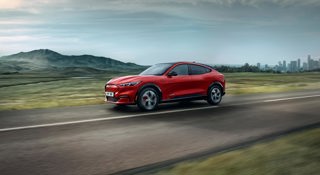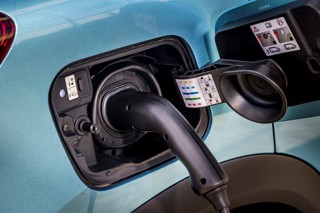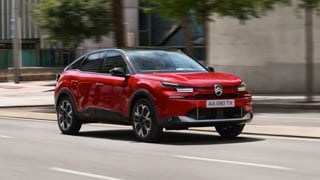The Government’s long-awaited transport decarbonisation plan has been delayed after it lacked the ambition to meet targets, including the 2030 ban on new diesel and petrol vehicles.
The plan was originally due to be published before the end of 2020 and was then pushed back to spring 2021.
It will now miss that deadline after transport minister Rachel Maclean told MPs in a Westminster debate that she was not happy with the draft plan.
She said: “I am not satisfied with the draft because it does not meet the ambition we need in order to reach those incredibly challenging targets.”
She told the debate in Westminster Hall that she was unable to give a publication date, but the Department for Transport (DfT) intended to publish the plan “soon”.
The plan is the first time the UK will lay out its approach to decarbonising every form of transport and is an essential part of achieving the legal requirement for net zero emissions by 2050 and the Climate Change Committee's sixth carbon budget.
Maclean told MPS that the Government is developing three key policy documents over the course of 2021.
“The first is a delivery plan that will set out key Government commitments, funding and milestones… for the 2030 and 2035 phase-out dates,” she said.
“It will deal with the question whether we will have a zero-emission vehicle mandate.”
An infrastructure strategy will set out the “vision and action plan” for the charging infrastructure roll-out that is needed to achieve the phase-out date successfully and accelerate the transition to zero emission transport.
“As part of this strategy we are working with local authorities, charge point operators and other stakeholders to ensure that our future charging infrastructure is practical, accessible, reliable and achievable, alongside outlining all the key roles and responsibilities for all actors in the EV charging sectors,” continued Maclean.
“It is clear that we need more charge points everywhere and this Government will set out how that will take place.”
It will also bring forward the Green Paper on the UK future CO2 emissions regulatory framework, which will set out how the UK will phase out petrol and diesel cars and vans and support the interim carbon budgets. This will include “consulting on which vehicles exactly can be sold between 2030 and 2035”.
Maclean also said that the Government intends to “support people to charge their cars at home”.
She explained: “We are working closely with the Ministry of Housing, Communities and Local Government at the moment and we have consulted on plans to introduce a requirement for every new home to have a charge point, where there is an associated parking space. We will publish our response soon.
“We aim to lay regulations in Parliament in 2021 - this year - that will make England the first country in the world to introduce mandatory charge points in new homes, again cementing our position as the global leader in the race to net zero.”
The Government also intends to tackle the issue of public charge points not working.
When questioned by Labour's shadow minister for green and future transport Kerry McCarthy whether there would be legislation requiring charge point operators to meet certain reliability standards, Maclean said: “We already have those powers in legislation and we intend to use them.”
























Login to comment
Comments
No comments have been made yet.